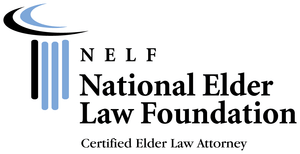Qualified Domestic Trust
/A qualified domestic trust is the only way your estate will be allowed to use the marital deduction if your spouse is not a U.S. citizen. That's because Uncle Sam doesn't want noncitizen spouses to inherit sizeable estates and then return to their homelands without paying any estate taxes.
Remember, the marital deduction lets you leave your spouse an unlimited amount of assets with no estate taxes when you die. Uncle Sam plans to collect the taxes when your surviving spouse dies. But if your spouse takes the assets and leaves the country, Uncle Sam is left empty handed. So, in 1988, Congress decided to eliminate the unlimited marital deduction for noncitizen spouses.
This means that, when you die, everything in your estate over the federal estate tax exemption will be taxed - unless your estate planning includes a qualified domestic trust (QDOT or QDT).
The assets that are transferred to this trust (probably all of your assets over the amount of the federal estate tax exemption) are not taxed when you die, so the entire estate is available to provide for your surviving spouse. The trust (not your spouse) owns the assets, but your spouse can receive income from it and, with the trustee's approval, may also receive principal.
To make sure estate taxes are paid when your spouse dies, at least one trustee of the QDOT must be a U.S. citizen or U.S. corporation. (Sometimes a surviving spouse wants to return to his/her homeland and finds it would be easier to have the trust administered there. But some countries do not authorize trusts or allow trusts to have U.S. trustees. For these situations, Congress recently passed legislation that will allow the requirement for a U.S. trustee to be waived and will allow a similar legal arrangement to be used instead of a trust.)
The income your spouse receives from the QDOT is taxed as ordinary income in the year it is received. But any principal your spouse receives (unless the distribution is due to "hardship" as defined by the IRS), plus assets remaining in the QDOT when your spouse dies, will be taxed as if they were part of your estate when you died (at your highest estate tax rate).
Without a QDOT, these estate taxes would have to be paid when you die. But with a QDOT (just like a "C Trust"), the taxes are delayed until your surviving spouse dies. So, more is available to provide for your spouse.
Of course, if your spouse becomes a U.S. citizen before the assets are transferred to the QDOT, you would not need one.
This information is designed to provide a general overview with regard to the subject matter covered and is not intended to provide legal, accounting, or specific advice to your situation. No legal representation or attorney/client relationship is created solely by use of this site.





